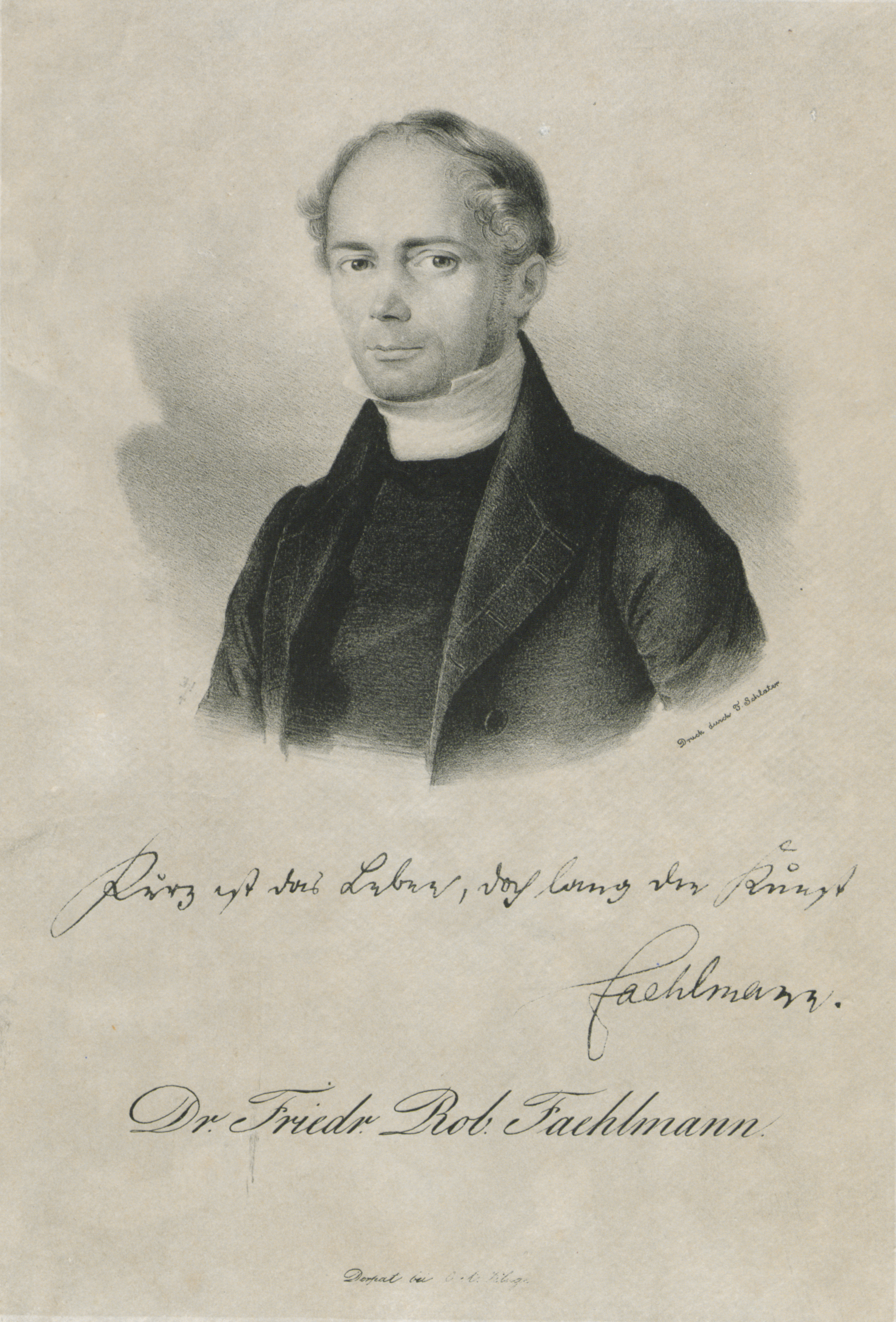|
├Ģpetatud Eesti Selts
The Learned Estonian Society (, shortened ├ĢES; , shortened GEG) is Estonia's oldest scholarly organisation, and was formed at the University of Tartu in 1838. Its charter was to study Estonia's history and pre-history, its language, literature and folklore. Friedrich Robert Faehlmann, Alexander Friedrich von Hueck and Dietrich Heinrich J├╝rgenson led the society that consisted of Estonian and Estophile Baltic German intellectuals. The society provides language analysis services in addition to assistance in the development of the scientific study of history, archeology, ethnography, numismatics and art history. The society published yearbooks, bibliographies and ''Proceedings''. The initial version of Friedrich Reinhold Kreutzwald's ''Kalevipoeg'' was published in its ''Proceedings'' between 1857 and 1861. In 1950, the Soviet occupation authorities shut down the society and split its collection of 25,000 books, 160,000 pages of manuscripts and 60,000 ethnographical items betwee ... [...More Info...] [...Related Items...] OR: [Wikipedia] [Google] [Baidu] |
University Of Tartu
The University of Tartu (UT; ; ) is a public research university located in the city of Tartu, Estonia. It is the national university of Estonia. It is also the largest and oldest university in the country.About the University University of Tartu The university was founded under the name of ''Academia Gustaviana'' in 1632 by Baron Johan Skytte, the of Swedish Livonia, |
Society Of Estonian Literati
The Society of Estonian Literati ( ŌĆō EKmS) was an influential association of Estonian intellectuals based in Tartu between the years 1871 and 1893.Toivo U. Raun, ''Estonia and the Estonians'', Hoover Press, 2001, , p75 History The articles of the Society of Estonian Literati was adopted in 1871. In March 1872 the first meeting was held in Viljandi. The society included the main Estonian writers, poets, artists and journalists of the time. Leading personalities were, among others, Friedrich Reinhold Kreutzwald, Hans W├╝hner, Jakob Hurt, Carl Robert Jakobson, Hugo Treffner and Johann K├Čler. The aim of the society was the promotion of the Estonian language Estonian ( ) is a Finnic language and the official language of Estonia. It is written in the Latin script and is the first language of the majority of the country's population; it is also an official language of the European Union. Estonian is sp ... and literature in to enrich Estonian social life and a greater unders ... [...More Info...] [...Related Items...] OR: [Wikipedia] [Google] [Baidu] |
1830s Establishments In Estonia
Year 183 ( CLXXXIII) was a common year starting on Tuesday of the Julian calendar. At the time, it was known in Rome as the Year of the Consulship of Aurelius and Victorinus (or, less frequently, year 936 ''Ab urbe condita''). The denomination 183 for this year has been used since the early medieval period, when the Anno Domini calendar era became the prevalent method in Europe for naming years. Events By place Births * January 26 – Lady Zhen, wife of the Cao Wei state Emperor Cao Pi (d. 221) * Hu Zong, Chinese general, official and poet of the Eastern Wu state (d. 242) * Liu Zan (Zhengming), Chinese general of the Eastern Wu state (d. 255) * Lu Xun, Chinese general and politician of the Eastern Wu state (d. 245 __NOTOC__ Year 245 ( CCXLV) was a common year starting on Wednesday of the Julian calendar. At the time, it was known as the Year of the Consulship of Philippus and Titianus (or, less frequently, year 998 ''Ab urbe condita''). The denomination ...) ... [...More Info...] [...Related Items...] OR: [Wikipedia] [Google] [Baidu] |
Organizations Established In 1838
An organization or organisation (Commonwealth English; see spelling differences) is an entityŌĆösuch as a company, or corporation or an institution (formal organization), or an associationŌĆöcomprising one or more people and having a particular purpose. Organizations may also operate secretly or illegally in the case of secret societies, criminal organizations, and resistance movements. And in some cases may have obstacles from other organizations (e.g.: MLK's organization). What makes an organization recognized by the government is either filling out incorporation or recognition in the form of either societal pressure (e.g.: Advocacy group), causing concerns (e.g.: Resistance movement) or being considered the spokesperson of a group of people subject to negotiation (e.g.: the Polisario Front being recognized as the sole representative of the Sahrawi people and forming a partially recognized state.) Compare the concept of social groups, which may include non-organiza ... [...More Info...] [...Related Items...] OR: [Wikipedia] [Google] [Baidu] |
Historiography Of Estonia
Historiography is the study of the methods used by historians in developing history as an academic discipline. By extension, the term "historiography" is any body of historical work on a particular subject. The historiography of a specific topic covers how historians have studied that topic by using particular sources, techniques of research, and theoretical approaches to the interpretation of documentary sources. Scholars discuss historiography by topicŌĆösuch as the historiography of the United Kingdom, of WWII, of the pre-Columbian Americas, of early Islam, and of ChinaŌĆöand different approaches to the work and the genres of history, such as political history and social history. Beginning in the nineteenth century, the development of academic history produced a great corpus of historiographic literature. The extent to which historians are influenced by their own groups and loyaltiesŌĆösuch as to their nation stateŌĆöremains a debated question. In Europe, the academic disc ... [...More Info...] [...Related Items...] OR: [Wikipedia] [Google] [Baidu] |
Estonian Folklore
The earliest mentioning of Estonian singing dates back to Saxo Grammaticus' ''Gesta Danorum'' (c. 1179). Saxo spoke of Estonian warriors who sang at night while waiting for a battle. Henry of Livonia at the beginning of the 13th century described Estonian sacrificial customs, gods and spirits. In 1578 Balthasar Russow described the celebration of midsummer (''jaanip├żev''), the St. John's Day by Estonians. In 1644 Johann Gutslaff spoke of the veneration of holy springs and J.W. Boecler described Estonian superstitious beliefs in 1685. Estonian folklore and beliefs including samples of folk songs appear in ''Topographische Nachrichten von Liv- und Estland'' by August W. Hupel in 1774ŌĆō82. J.G von Herder published seven Estonian folk songs, translated into German in his ''Volkslieder'' in 1778 and republished as ''Stimmen der V├Člker in Liedern'' in 1807. At the beginning of the 19th century during the Estophile Enlightenment Period (1750ŌĆō1840), increased interest in Estonian ... [...More Info...] [...Related Items...] OR: [Wikipedia] [Google] [Baidu] |
Estonian Writers' Organizations
Estonian may refer to: * Something of, from, or related to Estonia, a country in the Baltic region in northern Europe * Estonians, people from Estonia, or of Estonian descent * Estonian language * Estonian cuisine * Estonian culture See also * * Estonia (other) * Languages of Estonia * List of Estonians This is a list of notable people from Estonia, or of Estonian ancestry. Architects * Andres Alver (born 1953) * Dmitri Bruns (1929ŌĆō2020) * Karl Burman (1882ŌĆō1965) * Eugen Habermann (1884ŌĆō1944) * Georg Hellat (1870ŌĆō1943) * Otto Pius Hip ... {{Disambiguation Language and nationality disambiguation pages ... [...More Info...] [...Related Items...] OR: [Wikipedia] [Google] [Baidu] |
Lithuanian Literary Society
The Lithuanian Literary Society () was a literary society dedicated to the Lithuanian language that was active from 1879 to about 1923 in Tilsit, East Prussia (now Sovetsk, Kaliningrad Oblast). It was the first scientific society dedicated to Lithuanian studies. It sought to document, preserve, and study Lithuanian language, folklore, literature, and cultural heritage. Members of the society were mostly non-Lithuanian scholars (linguists and philologists) and conducted its proceedings in German. Activities It was established on October 14, 1879 in Tilsit by members of the Lithuanian Circle fellowship (''Litauisches Kr├żnzschen''). Society members published scientific studies on the Lithuanian language and culture, collected and published examples of folklore (songs, fairy tales, etc.), collected samples of folk art and exhibited them in German institutions. From 1880 to 1912, the society published 31 issues of its journal ''Mitteilungen der Litauischen literarischen Gesellschaft''. I ... [...More Info...] [...Related Items...] OR: [Wikipedia] [Google] [Baidu] |
Latvian Literary Society
The Latvian Literary Society (, ), also called The Society of Latvian Friends (''Latvie┼Īu draugu biedr─½ba'') was founded in 1824 by Baltic Germans, mainly pastors. The goal of the Society was to investigate the Latvian language, folklore and culture. At the time, when the Society was organized, hardly any Latvian educated in a higher education existed, and nobody researched their language or folklore. The society published a periodical which looked at scholarly studies and ethnographical research. The organization was dissolved in 1941 by Soviet authorities after the occupation of Latvia. Presidents *1824-1838: Gustav Reinhold von Kloth *1838-1845: Jacob Florentin Lundberg *1845-1851: Johann Theodor Berent *1851-1854: Karl Friedrich Jacob Hugenberger *1854-1864: Rudolf Schulz *1864-1895: August Johann Gottfried Bielenstein *1895-1903: Johannes Sakranowicz *1903-1919: Theodor D├Čbner *1925-1940: J─ünis Z─ōvers Members of Society in 1901 Honorary members 1. Bielenstein August ... [...More Info...] [...Related Items...] OR: [Wikipedia] [Google] [Baidu] |
Finnish Literary Society
The Finnish Literature Society ( or ) was founded in 1831 to promote literature written in Finnish. Among its first publications was the ''Kalevala'', the Finnish national epic. The society is the oldest Finnish publisher still in operation and publishes general non-fiction books including folklore, literature and history. In 2024, the SKS has just over 2,000 members; membership fees range from 20-35 euros per year. The SKS research library is open to the public. See also *Estonian Learned Society *Latvian Literary Society *Lithuanian Literary Society The Lithuanian Literary Society () was a literary society dedicated to the Lithuanian language that was active from 1879 to about 1923 in Tilsit, East Prussia (now Sovetsk, Kaliningrad Oblast). It was the first scientific society dedicated to Lithua ... References External links Official website''' Folklore Fellows website ''The folklore activities of the Finnish Literature Society'', article dated July 6, 2009 Finni ... [...More Info...] [...Related Items...] OR: [Wikipedia] [Google] [Baidu] |
Heiki Valk
Heiki Valk (born 7 May 1959, in Tartu) is an Estonian archaeologist. He is a senior research fellow and head of archaeological laboratory at the University of Tartu specializing in Estonia in the Middle Ages In the history of Europe, the Middle Ages or medieval period lasted approximately from the 5th to the late 15th centuries, similarly to the post-classical period of global history. It began with the fall of the Western Roman Empire and .... From 23 January 2008, he has been Chairman of the Estonian Learned Society and was its secretary from 1993 to 1996. He graduated from the University of Tartu of History in 1983. He has produced a thesis entitled "Rural cemeteries of Southern Estonia 1225-1800 AD" (2001). He has also served as Scientific Secretary of the Archaeology of Tartu from 1992 to 1999. He is a recipient of the President's Award in the field of folklore. (1994) Works *''Kodu Lugu''. 1. ja 2. osa. Koos Mart Laari ja Lauri Vahtrega. *''L├Ąuna-Eesti ... [...More Info...] [...Related Items...] OR: [Wikipedia] [Google] [Baidu] |
Friedrich Robert Faehlmann
Friedrich Robert Faehlmann (F├żhlmann) (31 December 1798 in Ao Manor, Kreis Jerwen ŌĆō 22 April 1850 in Tartu) was an Estonian writer, medical doctor and philologist active in Livonia, Russian Empire. He was a co-founder of the Learned Estonian Society at the University of Dorpat and its chairman (1843-1850). He was born to the family of the manager of Ao Manor (now in V├żike-Maarja Parish) in Kreis Jerwen. In 1825 he graduated from the medical department of the University of Dorpat. In 1827 he earned the M.D. degree and become a physician in Dorpat (now Tartu). In addition, he gave lectures in the Estonian language at the university during 1842ŌĆō1850. In the 1820s he became interested in Estonian culture. And in 1838 he became a co-founder of the Learned Estonian Society. He brought attention to Estonian folklore, notably the Kalevipoeg which, since his death, has become the Estonian national epic, thanks to the efforts of another Estophile, Friedrich Reinhold Kreu ... [...More Info...] [...Related Items...] OR: [Wikipedia] [Google] [Baidu] |




